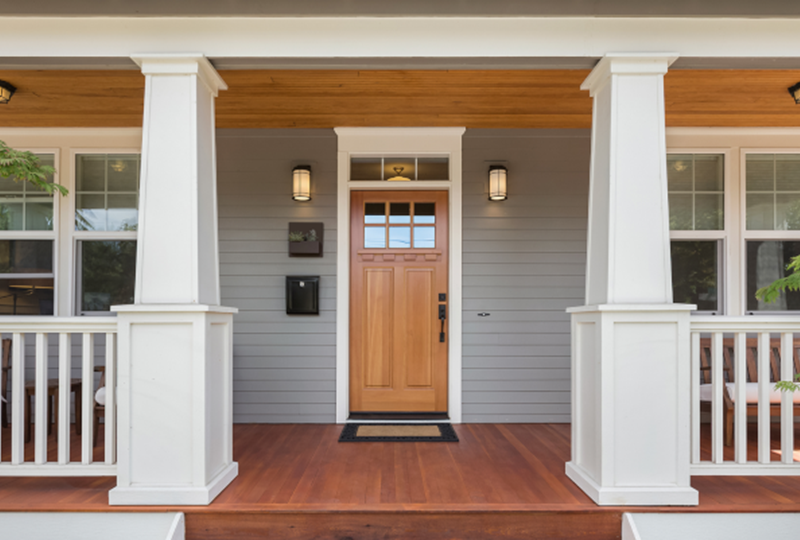
Homeownership can be complicated, but we also think it’s one of the most rewarding ventures out there. In our series, Ask an Edina Realty Lawyer, we are hoping to demystify some of the trickier aspects of buying, selling and owning a home.
In this edition, one of our lawyers discusses homeowner’s rights and responsibilities when addressing a defect in the construction of a new home.
Dear Edina Realty Legal,
I purchased a newly constructed home a few years ago. Recently, I discovered that I have water coming into the basement. Do I have any recourse to get this fixed?
When you purchase a new construction home, you know that the home has not experienced the wear and tear of a “used” home, some of which have been standing for more than a century. But new homes are not completely immune from issues. If the home was not constructed properly or if there are defective materials, you could run into an issue like this water intrusion problem.
Whether you have some recourse for the issue depends on a variety of factors, including the location of the property, the cause and extent of the issue, when the problem first arose and what you have done to try to resolve the issue. For our purposes, we’ll focus on the law for Edina Realty’s major market areas of Minnesota and Wisconsin.
Minnesota’s statutory new construction warranties
In Minnesota, when builders sell new construction homes, a state law requires that the builder warrant that the home will be free from defects caused by faulty workmanship or defective materials. The law provides varying warranty periods depending on the type of issue:
- For a period of one year (usually starting on the date of closing), the builder warrants that the home will be free from defects (as that term is defined by law) in general.
- The plumbing, electrical, heating and cooling systems are warranted from defects for two years.
- Finally, the builder must warrant that the home will be free from major structural defects for 10 years.
These warranties automatically come with the property and they will pass to future owners if there is still time remaining in the warranty periods.
If you experience a problem that you believe is covered by the warranty, there are a number of steps you must take in order to protect your rights, including:
- You must notify the builder in writing within six months of when you discover (or should have reasonably discovered) the issue.
- You must give the builder an opportunity to inspect the property and make an offer to repair the problem.
- If the builder will not agree to make the repairs, you may need to engage in a dispute resolution process or wait for 60 days before commencing legal action. This process is administered by the Minnesota Department of Labor and Industry and can be helpful in resolving disputes.
- If the builder has gone out of business, you may still be able to get compensation from a fund administered by the state.
Wisconsin new construction issues
Wisconsin does not have the same statutory warranty as Minnesota. But for custom-built homes, Wisconsin law implies a promise that the construction will be done in a workmanlike manner. Like in Minnesota, Wisconsin has specific requirements prior to commencing legal action for a construction defect.
- You must give the builder written notice of the defect and an opportunity to inspect.
- The builder may offer to resolve the issue, either by repair or monetary compensation or a combination of both.
- If the offer is unacceptable, you must give notice to that effect along with your reasons for rejecting the offer.
- The builder is entitled to make a supplemental offer. If that supplemental offer is not acceptable, you must provide written notice of your rejection.
All of these requirements have tight deadlines that must be met.
Other warranties and remedies
Builders can, and often do, provide their own warranties in lieu of the warranties mentioned above. In Minnesota, the warranty program offered by a builder must provide substantially the same protection as that found in the statutory warranty.
The builder’s warranty may have different notice requirements and other procedures that you will need to follow, so be sure to carefully review any material they provide. In addition to warranties, a homeowner dealing with a construction defect may have a claim for breach of contract, negligence or even misrepresentation.
As you can see, in both Minnesota and Wisconsin, the law surrounding construction defects is complicated. To ensure that you have properly preserved any claim, you would be well-served by consulting with your own attorney.
The Edina Realty Legal Department serves as in-house counsel for Edina Realty and does not represent private clients. This Insight is not intended to provide legal advice.









 ©2025 Prosperity Home Mortgage LLC®. (877) 275-1762. 3060 Williams Drive, Suite 600, Fairfax, VA 22031. All first mortgage products are provided by Prosperity Home Mortgage, LLC®. Not all mortgage products may be available in all areas. Not all borrowers will qualify. NMLS ID #75164 (For licensing information go to: NMLS Consumer Access at
©2025 Prosperity Home Mortgage LLC®. (877) 275-1762. 3060 Williams Drive, Suite 600, Fairfax, VA 22031. All first mortgage products are provided by Prosperity Home Mortgage, LLC®. Not all mortgage products may be available in all areas. Not all borrowers will qualify. NMLS ID #75164 (For licensing information go to: NMLS Consumer Access at